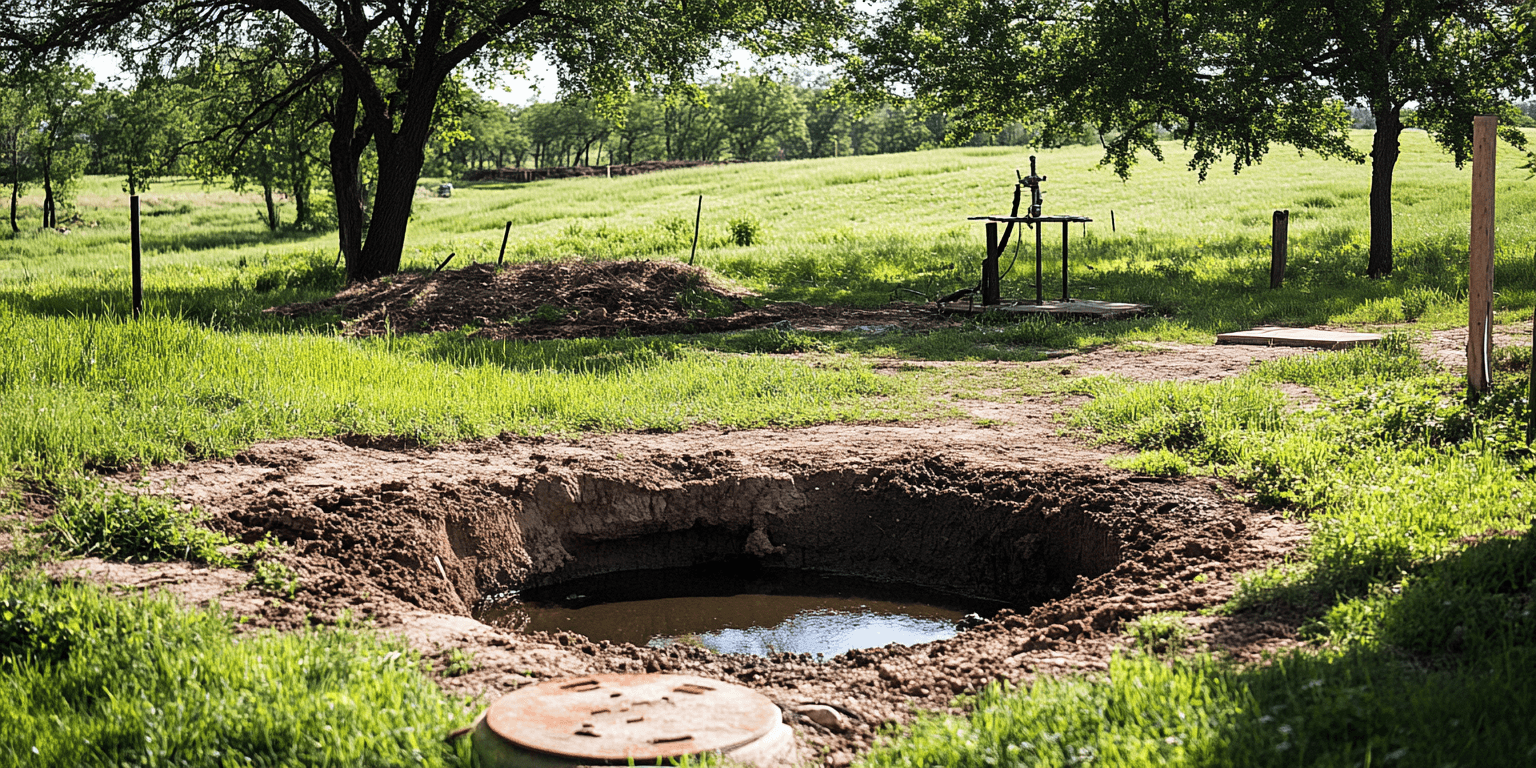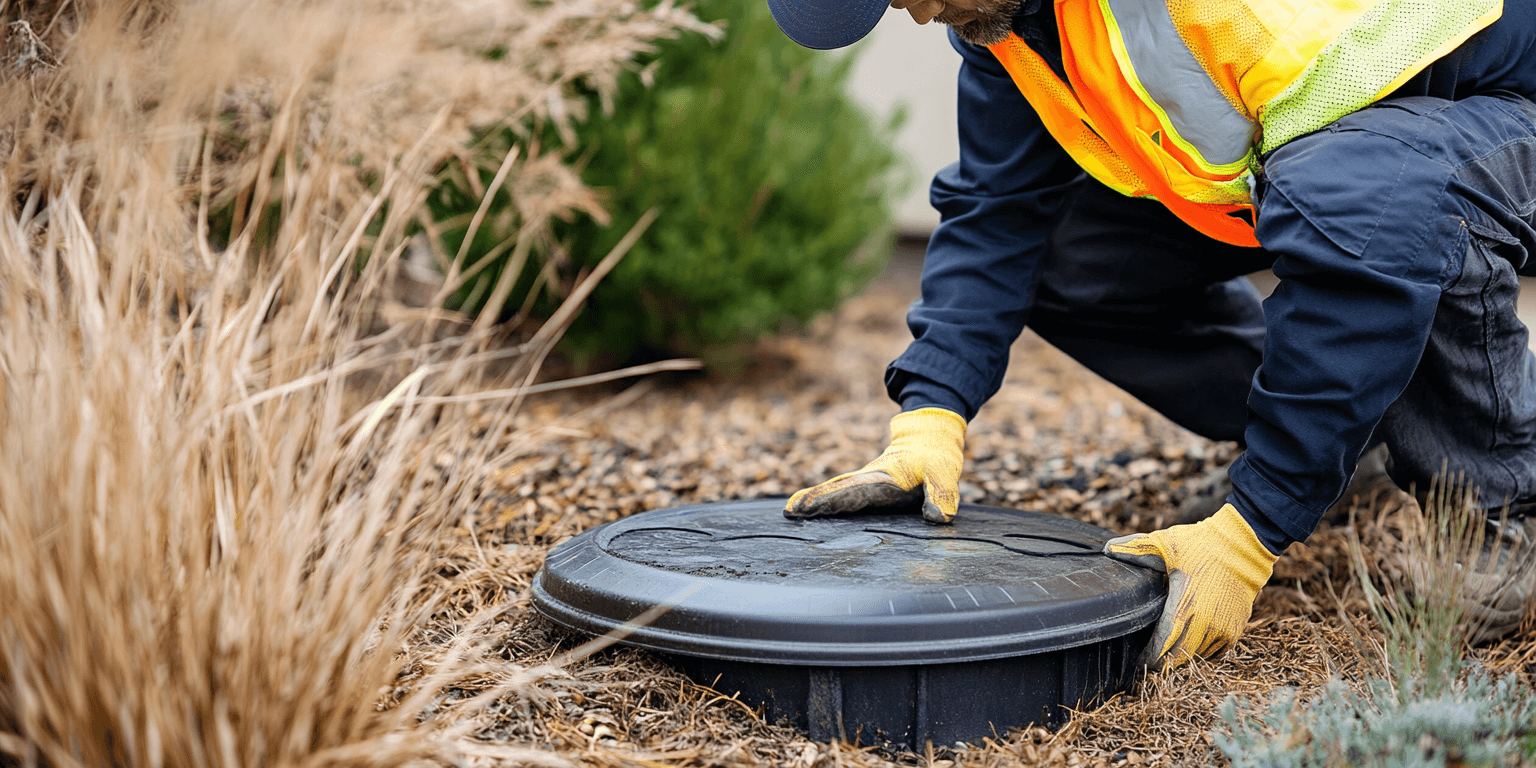For rural homeowners, a septic system is a crucial component of daily living. Unlike homes connected to municipal sewer systems, rural properties rely on septic systems to handle waste. However, many homeowners overlook the importance of regular septic inspections, which can lead to costly repairs or even system failure. At 1st Choice Inspection Services TREC#9175, we emphasize that septic system inspections are not just a recommendation—they're a necessity.
Here’s why septic inspections are vital for rural homeowners and how they can prevent expensive problems down the road.

Septic systems work quietly in the background, making them easy to forget about—until there’s a problem. The system treats and disposes of household wastewater by separating solids from liquids, with the liquid being filtered and eventually returned to the ground. However, like any other system in the home, septic systems require regular maintenance and inspections to keep them functioning properly.
If a septic system fails, it can lead to major issues, including sewage backups, contamination of groundwater, and costly repairs. Rural properties are particularly vulnerable to these risks due to their reliance on private septic systems.
A septic inspection can help you avoid these issues by identifying potential problems before they escalate, ensuring the system is functioning properly, and helping you avoid major repairs or replacements.
A septic system inspection provides valuable insight into the health of your system. Here’s how it protects your property:
A failing septic system can also cause sewage to back up into your home or yard, resulting in a health hazard and costly cleanup. An inspection helps ensure your system is working efficiently and safely, reducing the risk of these unpleasant surprises.
By scheduling regular septic inspections, you can prevent contamination and ensure your water remains safe for drinking and other household uses. 1st Choice Inspection Services checks for signs of leaks or system failure that could pose a risk to your drinking water.
Through routine inspections, we provide guidance on how often to pump your septic tank based on the size of your household and the system’s capacity. This preventive maintenance helps extend the life of your septic system, saving you money in the long run.
At 1st Choice Inspection Services, we don’t just inspect the visible components of the system. We also evaluate the performance of the drain field, ensuring it’s filtering wastewater effectively and that no dangerous bacteria or contaminants are reaching the surface.

A septic inspection involves a detailed evaluation of the system's components and performance. Here's what to expect when you schedule a septic system inspection with 1st Choice Inspection Services:
For rural homeowners, it’s recommended to schedule a septic system inspection every 3 to 5 years, depending on the size of your household and how heavily the system is used. Homes with larger families or older systems may require more frequent inspections to ensure everything is functioning correctly.
At 1st Choice Inspection Services, we also recommend an inspection whenever you’re buying or selling a rural home to ensure the septic system is in good condition before the transaction is completed.

In addition to regular inspections, here are a few simple maintenance tips to keep your septic system running smoothly:
Divert Rainwater: Make sure that rainwater is directed away from the drain field to prevent soil saturation, which can lead to system failure.
For rural homeowners, a septic system is essential to daily living, and maintaining it is key to avoiding costly problems. At 1st Choice Inspection Services TREC#9175, we provide comprehensive septic system inspections that help identify potential issues before they become expensive repairs. Regular inspections protect your investment, ensure the longevity of your system, and keep your property and drinking water safe.
Don’t wait until there’s a problem—schedule your septic inspection today with 1st Choice Inspection Services and give yourself peace of mind knowing your system is in good hands.
It’s recommended to have your septic system inspected every 3 to 5 years, depending on the size of your household and how heavily the system is used.
Common signs include slow drains, foul odors, standing water near the drain field, and sewage backups. If you notice any of these signs, schedule an inspection immediately.
A septic inspection helps identify potential issues like leaks, clogs, or failing components before they cause significant damage or pose health risks. This preventive measure can save you from expensive repairs and protect your drinking water.
Yes, a failing septic system can contaminate groundwater, which may affect the safety of your well water. Regular septic inspections help prevent contamination and protect your water supply.
A comprehensive septic inspection includes a visual inspection, checking sludge and scum levels, evaluating the drain field, and inspecting the inlet and outlet pipes for any damage or blockages.
While not always legally required, it’s strongly recommended to have a septic inspection when buying a rural home. This ensures that the system is in good condition and that you won’t face costly repairs after the purchase.